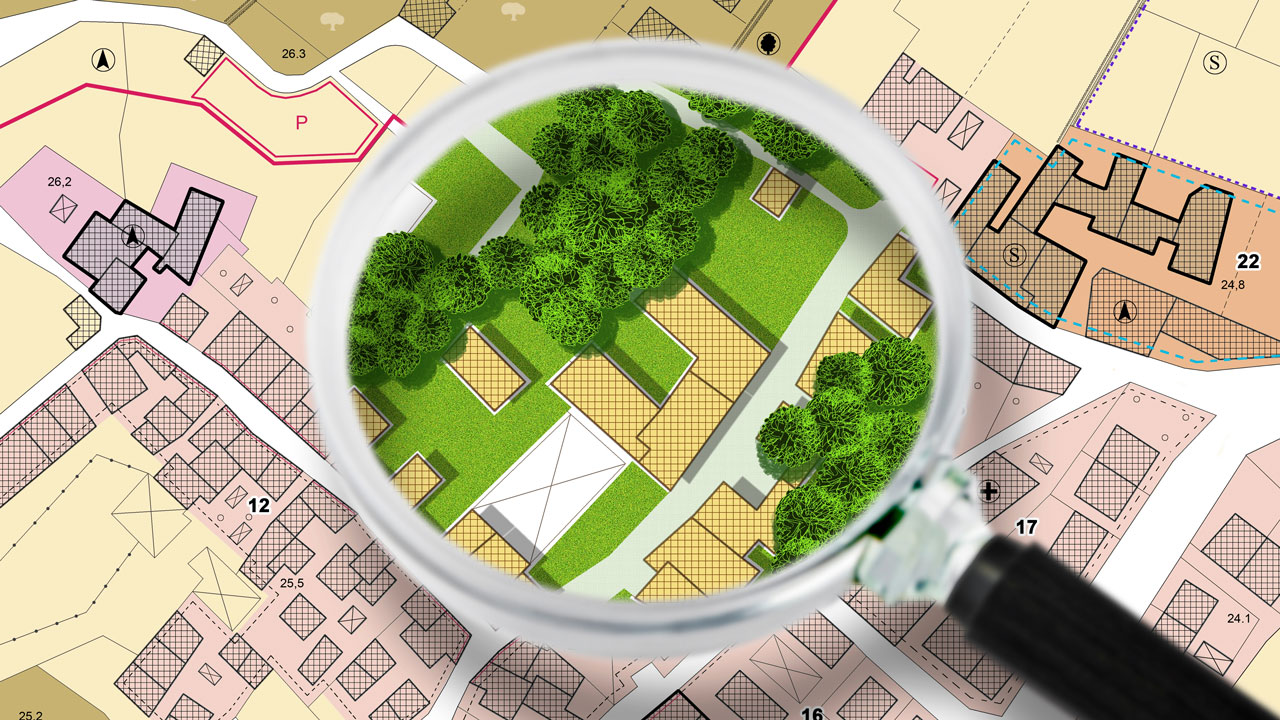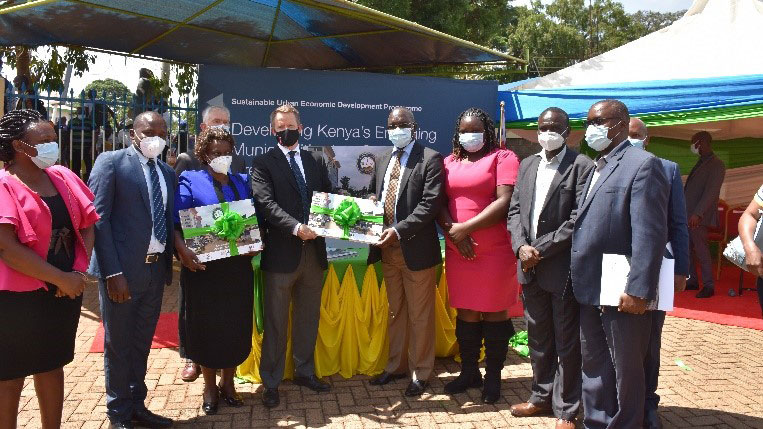
In our latest case study from the Kenya Sustainable Urban Economic Development programme, our team looks at how master planning is playing a vital role in enabling strategic and climate resilient development in the Kisii municipality.
The Kenya Sustainable Urban Economic Development Programme (SUED) is a Foreign, Commonwealth and Development Office programme that supports growth and sustainable economic development by unlocking private and public investment in the urban sector. One of the primary ways that the programme does this is by ensuring that urban economic planning processes promote sustainable land use and spatially balanced urban development that spurs green economic growth.
SUED – implemented by a Tetra Tech team since 2017 – promotes balanced growth in small and medium sized urban centers that are located along growth corridors with high-economic potential and is aimed at creating transformational economies that allow its citizens to respond effectively to climate risks. The programme is working closely with 12 municipalities in Kenya to better position them as emerging urban centers that will attract more investment for critical climate resilient infrastructure and value chain projects.
Kenya’s land use history
In the last 50 years Kenya has experienced tremendous urban population growth – from around 8% of people living in cities at independence in 1963 to 40% in 2015. By 2030, it is projected that more than half of Kenya’s population will live in urban areas. This rapid urbanisation has primarily been centered in five areas: Nairobi (the capital), Mombasa, Kisumu City, Nakuru and Eldoret.
More recently, however, key county towns and cities have been experiencing rapid urban growth, increasing the number of individuals seeking urban services. Despite having county administrations with devolved functions to manage these new urban areas, much of the growth has been unplanned and uncoordinated. This has primarily been due to inadequate technical and institutional capacity to plan and regulate urban planning in ways that are both economically and environmentally sustainable. The lack of priority given to land use planning has greatly inhibited the capability of county and municipal officials to properly delineate planning areas within their urban centers This uncontrolled development has limited the capacity of the County Governments to put in place the necessary supporting social infrastructure to complement the urban areas’ economic activities and support inclusive and sustainable growth.
A collective vision: Kisii’s Urban Economic Plan
Drawing on the expertise of the SUED team, and the wider experience of Tetra Tech, the project has helped to create adaptative urban integrated plans to ensure that sustainable urban development has appropriate infrastructure support. In Kisii municipality, one of the 12 supported by SUED, its urban centre previously had no spatial development framework to guide its land use approach. As a result, the municipality has experienced challenges such as uncontrolled plot development, urban sprawl, decay of prime locations and existing housing stock, significant traffic congestion and a lack of public open spaces. Its public utilities – sewage system, piped water, and roads – are overwhelmed. Public amenities have fallen into disrepair, access to urban services and supportive social infrastructure has declined and there has been significant environmental degradation. This has greatly reduced the economic potential of Kisii’s urban center and left its residents even more vulnerable to the impacts of climate change, such as more frequent flash floods.
With SUED support, Kisii municipality was able to participate in an overarching concept development process during the development of their urban economic plan. This work yielded a cohesive Urban Economic Plan (UEP), aligned under a unified purpose and vision statement: “to develop Kisii into a green, walkable, economically vibrant cosmopolitan city that serves as a regional trade and business hub founded on climate resilient and inclusive infrastructure and inclusive opportunities for all”.
The work on the UEP was co-developed by the county, municipal, public, and private sector stakeholders, engendering greater ownership and commitment. SUED has been able to support the identification of key municipal objectives that have flowed from the overarching vision, including a decongested urban center that would enable its residents to live and work sustainably in a well-planned, resource efficient town with open spaces. The UEP outlines how Kisii’s municipal leaders should be effective in their urban land use, in order to position themselves as the regional economic hub. The culmination of the UEP development process was the formal UEP launch, that shared with the larger community how the municipality and SUED would work together to support residents to adapt to predicted climate change impacts.
Laying foundations for the future
The reimagining of Kisii’s urban space has been born of rich discussions with the local stakeholders and incorporation of local solutions to positively impact the quality of life for Kisii’s residents. By designing a development framework that is focused on helping Kisii support better functioning of its urban center, SUED is prioritising the development of master plans that enable municipal urban centers to function effectively and efficiently. With SUED’s support, Kisii now has new approaches to optimise land use to encourage mixed-use development that takes advantage of agglomeration of economies. The urban planning is aimed at demonstrating to the municipal and county leadership how informed land use is critical for enhancing the urban environment and reducing climate vulnerability of the city’s residents. This approach will help support Kisii’s vibrant trading economy to catalyse its sustainable economic development.
Participatory land use planning can also contribute to more secure tenure rights for the poor and formalisation processes. SUED’s activities lay the foundations for future development programmes to improve land administration, which in turn can facilitate informed planning and investment – a virtuous circle of planning, investment and inclusive growth.
